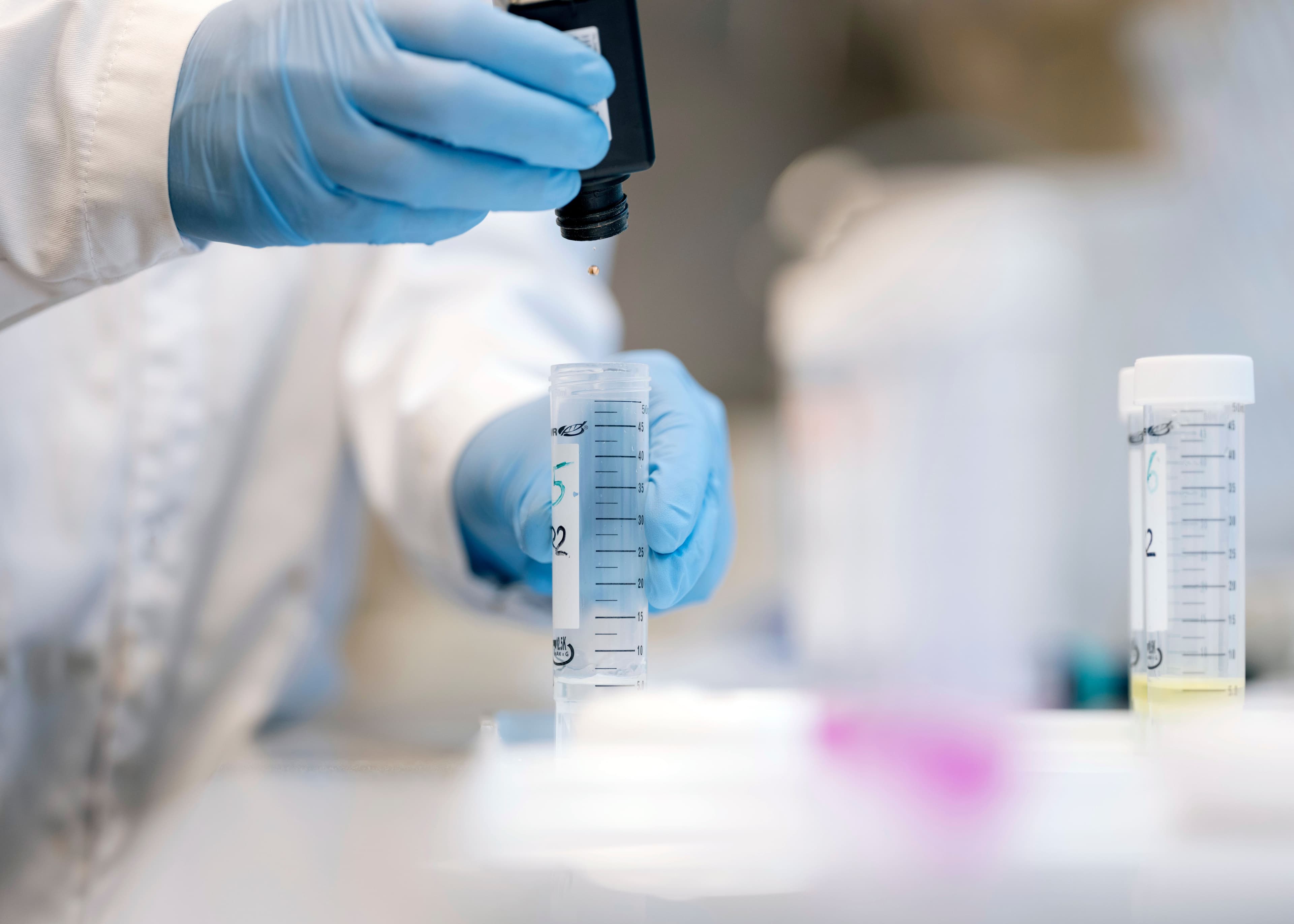
Through our research and development (R&D) endeavors, we seek knowledge to develop and strengthen our processes, operations, products as well as better utilizing technologies and solutions available in the market.
In most of our projects we team up with research institutions, like universities and research institutes, as well as other industrial partners. The scope of the projects varies from extensive strategic research programs with many different collaborating entrants, to limited improvement projects with direct impact on our farming operations. Grieg Seafood has over the last couple of years strengthened our internal capability to tease through our own production datasets by in-house analytical competency. This way we form in-house project groups that team up with corporate competency in areas like fish health and nutrition to improve our farming operations.
At present we perform, or are involved in, projects covering our entire operational value chain. Here are some examples from our activities with open sources:
Sterile salmon production by editing by CRISPR-Cas9
The primary objective of this project is to explore and establish, biotechnological methods for industrial scale production of genetically sterile salmon, with the secondary aim being to conclude on the market potential of such biotechnological methods. The project leader is Institute of Marine Research (IMR) in Norway, and Grieg Seafood is the sole aquaculture company in the consortium, the project is founded by the Norwegian Research council. The project use CRISPR-Cas9 to knockout genes in Atlantic salmon, to be able to explore molecular mechanisms related to the reproductive system, in particular germ cell specification and early sexual development, and researchers at IMR have recently produced germ cell free salmon by ablation of the primordial germ cells using CRISPR-Cas9 knockout of the dnd gene. By this work we aim to explore fields which can result in sterility models for aquaculture that could solve major bottlenecks related to un-wanted sexual maturation and genetic interactions with wild populations.
Read more: https://www.hi.no«Spironucleus salmonicida infections and spironucleus in Norwegian aquaculture: Transmission routes, host rage and prevention»
The objective is to provide knowledge for the prevention and control of the parasite Spironucleus salmonicida, both regarding salmonids, but also cleaner fish and wild living fish species. The project leader is Institute of Marine Research (IMR).
The main focus in the project is to carry out studies that can contribute to increased biosecurity against S. salmonicida in hatcheries, including RAS (recirculation facilities). Comprehensive studies have been performed at research labs in the project to clarify doses of UV required to inactivate and kill the parasite. Thorough studies have been carried out to study how S. salmonicida infection in sea water and fresh water takes place, and how it spreads among different fish species.Based on the findings in the project, the project group will develop recommendations for best practice for prevention, monitoring, and control.We aim to provide a knowledge base for measures with regard to reducing the biological risk of infection with the parasite.
“Winter wound bacteria in sea-based aquaculture
- are they specialized invaders or random passers-by?”
The main objective is to generate knowledge about why specific varieties of Moritella viscosa and Tenacibaculum finnmarkense are overrepresented among isolates cultured from farmed salmon in sea with winter ulcers. The project is led by the Norwegian Veterinary Institute (NVI) and Grieg Seafood Finnmark is the main contributor from our side. The main activity from our side is regularly sampling of water samples from pens and outside pens in two different farm sites. The water is filtered before shipping of the samples to the NVI for eDNA analyses. The project got funding for three years activity and will run until 2026.
Read more: https://www.fhf.no/prosjekter/prosjektbasen/901838/
BIOSIRKEL
The project BIOSIRKEL main objective is to unleash the completeness and value creation of the western Norway region by building capacity, strengthen competence and accelerate bio-circular interactions. The project lead is NORCE and Grieg Seafood is the salmon aquaculture industrial partner. The objectives are to be achieved by serving the region as a competence platform for circular innovation and interaction between research, business, public sector and education. The platform will initiate and facilitate scaling of novel circular, bioeconomic opportunities by connecting partners within areas like waste streams and bioeconomic opportunities like new feed ingredients. It will be mandatory to identify and develop specific value chains and business models that provide the most significant potential for completeness with local and regional resources and business structures. This, in combination with projects that show promise in implying the least climate- and environmental footprint.
Performance of post-smolt in the sea phase (PreSSS)
In this project we aim to find connections between production protocols and biosecurity in the land phase and the salmon's performance in the sea phase. We participate in this research in order to optimize the production of large smolt. Grieg Seafood is part of a strong consortium consisting of research partners, Nofima is the project leader, and several other salmon producers in Norway. By running statistical analyses on production data and health data from commercial production, the project aims to come closer to what production protocols results in the best performance and fish health during the production phases and at harvest.
It is expected that the results from the project will contribute to optimizing production protocols and strategies so that the performance and robustness of large smolts in the sea phase is improved. It is essential to reduce the lice pressure the fish are exposed to in the sea phase, so that the number of lice treatments is reduced. This will lead to reduced mortality and increased growth, which will increase the sustainability of the Norwegian aquaculture industry, both economically and environmentally.